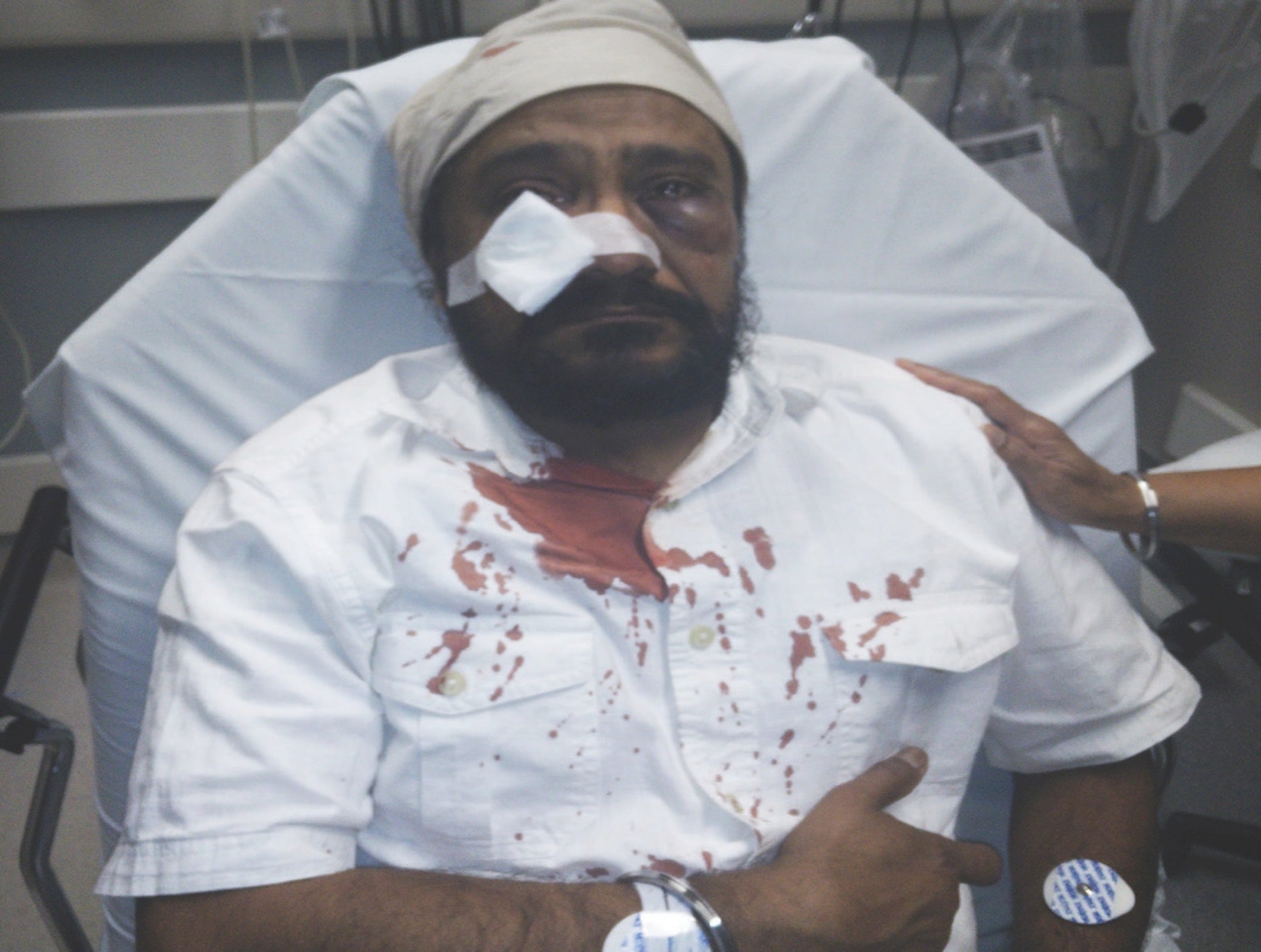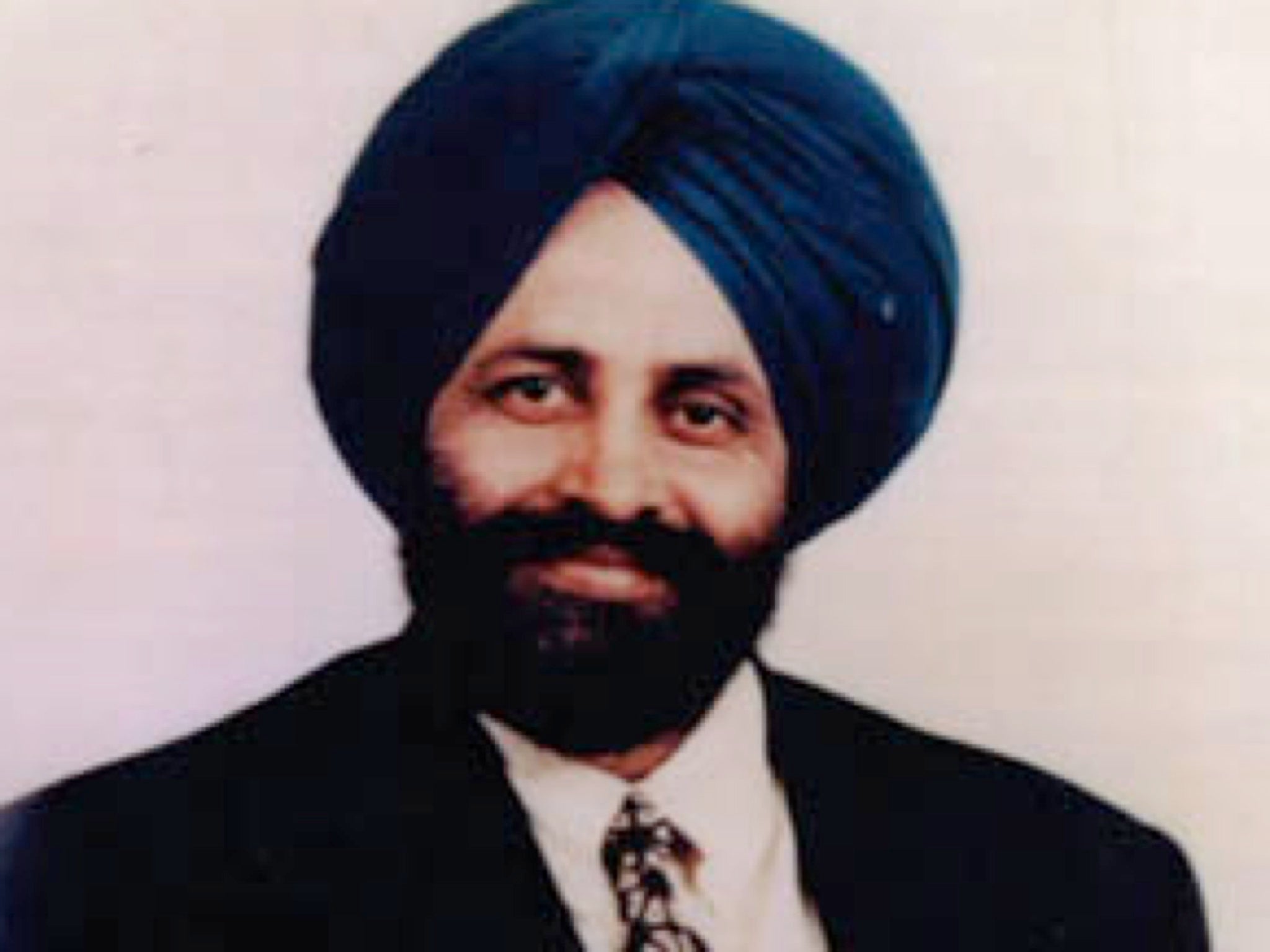Sikh taxi driver accused of being a terrorist and badly beaten in Chicago 'hate crime'
Inderjit Singh Mukker was told he was 'Bin Laden'

Police in Chicago said they are investigating an apparent hate crime attack after a Sikh taxi driver was beaten and accused of being a “terrorist”.
Inderjit Singh Mukker, 53, was on his way to the shop and pulled over when the vehicle behind him kept getting close. But rather than pulling past him, the driver of the car stopped, got out of his car and approached Mr Mukker.
“Terrorist”,“Bin Laden”, “Go back to your country,” the man yelled at the father-of-two, according to a local Sikh organisation.
“His cheek was fractured, he had a laceration that required six stitches, he had black eyes, and bruising and swelling all over his face,” Sikh Coalition Legal Director Harsimran Kaur told NBC Chicago.
Mr Kaur added that Mukker was likely targeted because of articles of his faith, including a turban and beard. The taxi-driver, originally from India, has spent 27 years in the US, campaigners said.
Mr Mukker lost consciousness and had to be taken to the hospital, where he received treatment for a fractured cheekbone, bruising and blood loss.
Police in Darien, 30 miles southwest of downtown Chicago, said that the incident Tuesday night is being investigated as a hate crime. The alleged assailant is in police custody.
Mr Mukker, who was released from the hospital Wednesday, gave a statement to the Sikh Coalition, the non-profit advocacy group providing his legal representation.

“No American should be afraid to practice their faith in our country,” he said. “I’m thankful for the swift response of authorities to apprehend the individual, but without this being fully investigated as a hate crime, we risk ignoring the horrific pattern of intolerance, abuse and violence that Sikhs and other minority communities in this country continue to face.”
According to Simran Jeet Singh, a senior religion fellow at the coalition working on Mukker’s case, Sikh Americans have been increasingly victimised in hate crimes in the years since 9/11.
“For Sikh Americans, the unique markers of religious identity — the turban, the beard — these markers are associated with the markers of terrorism,” he said. “People see a Sikh and construe them as the enemy.”
On September 15, 2001, four days after 9/11, Balbir Singh Sodhi was shot and killed outside his petrol station in Arizona. The gunman mistook the 49-year-old Sikh, an immigrant from India, for an Arab, and said he killed him in retaliation for the attacks. The attacker was found guilty of murder and sentenced to death.
The Washington Post said that in the following month, the Sikh Coalition recorded at least 300 cases of violence and discrimination against Sikhs in the U.S. The next 14 years have seen hundreds more. In 2009, the Coalition found that 9 per cent of Sikh adults in New York said they gad been physically assaulted for their religion.
This summer, the Sikh temple in Wisconsin where six people were fatally shot by a white supremacist in 2012, said it was closing its doors. The community was shaken by the deadly shooting at a historic black church in Charleston in June, and felt it was no longer safe to stay open to anyone. People now have to knock.
Mark Reading-Smith, a spokesman for the national Sikh Coailition, told The Independent the group hoped that hate crime charges would be brought in Chicago.
Join our commenting forum
Join thought-provoking conversations, follow other Independent readers and see their replies
Comments
Bookmark popover
Removed from bookmarks